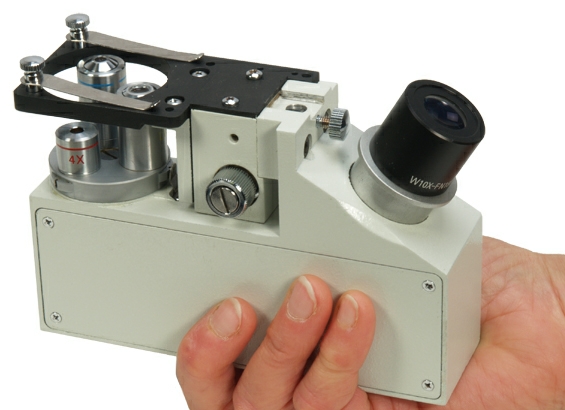

Brunel Microscopes Ltd was established in 1986 and has therefore many years professional experience in all aspects of microscopy and specimen preparation. We stock a wide range of light microscopes, stereomicroscopes, accessories, prepared slides, stains and reagents that are suited to the professional and amateur microscopist as well as educational establishments, industry and research. We are specialists in the field of microscopy image capture and pride ourselves in being the ‘UK One Stop Shop’ for all items relating to the many aspects of microscopy. In addition we provide microscopy training programs and undertake on site commercial servicing.
If you have specific requirements please choose from the links above. All items shown are available for direct purchase in our Secure Online Shop, and there are links on each page of this web site that take you straight there.
For expert and friendly advice please telephone our Helpline and speak to one of our technical advisors and they will be pleased to assist. We are one of the largest independent microscopy supply companies in Europe and are proud of the reputation we have built over the last 27 years.

Handling Microscope Solutions

There are basically two types of microscope available, the low power stereomicroscope
(which produces a 3D image of a whole object), and the high power or compound
which can magnify up to x1500 and is used for slide preparations.
The Low Power Stereomicroscope
This type of microscope has a much greater depth of focus than a high power microscope, allowing much more of the object depth to be in focus at the same time. Stereomicroscopes utilise this phenomenon using a double lens system consisting of two eyepieces each with their own objective. In the microscope these two lens systems are at a slight angle to one another which produces a 3D effect. Stereomicroscopes are used for looking at whole objects without the need for slide preparation and are ideal for those with a general interest in the smaller forms of nature or specifically for examining insects, flowers, coins and metal objects, etc. Stereomicroscopes are an ideal introduction to microscopy for children who are able to look at any object instantly, and at a relatively low magnification which allows them to make sense of
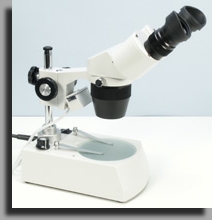
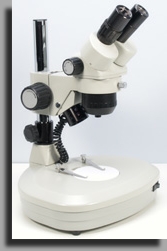
High Power or Compound Microscopes
Compound microscopes are used for examining slide preparations of very thin objects, or slices through larger objects, flattened objects or things which are themselves microscopic. Even at their lowest magnifications they have virtually no depth of focus and cannot be used for examining whole objects with any degree of success. Slide preparations are illuminated from beneath and have to be thin enough to be transparent. Compound microscopes have a turret arrangement to allow different objectives to be rotated into use, a stage for holding the slides and some form of under stage lighting such as a mirror or in built illumination. A typical magnification range may extend from x40 up to x1000.
The choice of compound microscope can also be effected by the range of applications available and whether or not more specialised techniques such a phase contrast and dark ground work are required. A scan of the accessories list for each model will show the potential applications. Photography and CCTV can be carried out on virtually all the microscopes in our range and the various attachments are listed. For further assistance please call or E-
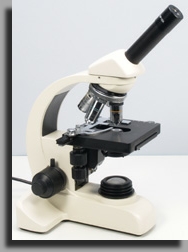

We are open Mondays -
The Brunel brand also covers:
Used Microscopes -
Microscopy Imaging -
Educational Microscopes -
Digital Microscopes -
Brunel Computing -
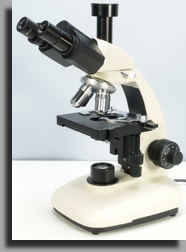

Bumpers Farm Industrial Estate
Chippenham
Wiltshire
SN14 6NQ
UK
Fax: 01249 445156
Email: mail@brunelmicroscopes.co.uk
www.brunelmicroscopes.co.uk
Brunel Microscopes Ltd
Registered in U.K. (England) No: 2060047
find us on youtube, facebook and twitter
 Microscopes
Stereomicroscopes
Accessories
Microscopes
Stereomicroscopes
Accessories
| Pocket microscopes /hand lenses |
| Budget Stereos |
| Lab Stereos |
| Zoom Stereos |
| Long arm Stereos |
| Gemscopes |
| Inspection & QC Stereos |
| Zoom Monoscopes |
| High Power Digital |
| Handheld & Desk Top |
| Digital Stereos |
| Digital Cameras |